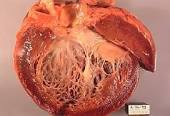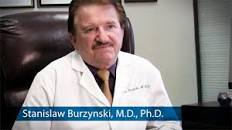
Diagnosed with Cancer? Your two greatest challenges are understanding cancer and understanding possible side effects from chemo and radiation. Knowledge is Power!
Learn about conventional, complementary, and integrative therapies.
Dealing with treatment side effects? Learn about evidence-based therapies to alleviate your symptoms.
Click the orange button to the right to learn more.
- You are here:
- Home »
- Blog »
- side effects ID and prevention »
- Chemo-induced Cardiomyopathy
Chemo-induced Cardiomyopathy

“Traditional chemotherapeutic agents and newer targeted therapies for cancer have the potential to cause cardiovascular toxicities. These toxicities can result in arrhythmias, heart failure, vascular toxicity, and even death.”
There are side effects of cancer therapy and then there are side effects. I am more likely to die of the late stage side effect called chemotherapy-induced cardiomyopathy and accompanying heart damage than I am of my original cancer at this point.
That it why I consider the heart damage caused by the many cardio-toxic chemotherapy regimens that I underwent as a newly diagnosed cancer patient to be the later- a serious side effect.
Waking up one morning in late 2010 and flipping into chronic or complete atrial fibrillation took me by surprise to say the least. Hearing the cardio-oncologist tell me I had chemotherapy-induced cardiomyopathy was even worse.
An appointment with a cardiologist at the Cleveland Clinic a couple of weeks later led to a diagnosis of chemotherapy-induced cardiomyopathy. Annual echocardiograms over the years has indicated the other heart damage issues below.
- Chemotherapy-induced Cardiomyopathy-
- Chemotherapy-induce Atrial Fibrillation (Afib)-
- Chemotherapy-induced Hypertension-
- Chemotherapy-induced Heart Valve Damage-
But here is rub #1. If my conventional therapies- induction chemo, several rounds of local radiation and an autologous stem cell transplant- had done anything for me, had put me in remission, given me more time, etc. I would be okay with the damage done by cardio-toxic chemotherapy and my eventual diagnosis of chemotherapy-induced cardiomyopathy.
But several years of conventional oncology treatments caused a host of short, long-term and late stage side effects and a my oncologist telling me that there was nothing more she could do for me. This is commonly referred to as a diagnosis of end-stage cancer.
Now, you may be wondering how I’m writing this blog post in November of 2021 when I was given a diagnosis of end-stage cancer in September of 1995. My end-stage diagnosis led to extensive Internet research. Extensive Internet research led me to a “quack” cancer therapy called Antineoplaston Therapy (ANP) developed by the Burzynski Research Institute-specifically Dr. Stanislaw Burzynski.
I now question the thinking anytime conventional oncology refers to any therapy as “alternative” or as a “quack” cancer therapy. I mean, let’s be honest. ANP did put me into complete remission months after my end-stage, “we can do nothing more for you” diagnosis. But I digress…
Here is rub #2. All of the chemotherapy regimens listed below were prescribed to me in 1995. That is to say I underwent VAD induction therapy, high-dose cytoxan and then a melphalan-based autologous stem cell transplant. There are dozens of studies indicating that these chemo regimens are cardio-toxic. Any many are more so with added together.
- Vincristine
- Doxorubicin
- Cytoxan/cyclophosphomide
- Busulphan
- Melphalan
My point here is that my oncologist must have understood that my heart would be damaged severely by giving me five different types of cardio-toxic chemo. What was he thinking???
And rub #3 is this. My diagnosis of chemotherapy-induced cardiomyopathy aka heart damage surfaced fully 15 years after I was given cardio-toxic chemotherapy. The research linked and excerpted below cites the many different types of cancer therapy that can cause heart damage. But none of the studies track cancer survivors for more than 5 or 10 years.
What about all the cancer survivors who may experience heart damage as a long-term side effect the way I did? Are there 000’s of ticking time bombs walking around out there? And if a long-term cancer survivor develops heart failure 20-30 years after he/she underwent cardio-toxic chemo, will a cardiologist attribute the heart failure to nasty chemotherapy regimens?
Research studying short, long-term and late stage side effects arrives in my in-box every morning. Maybe a study documenting late stage cardio-toxic heart damage will show-up some day. I’ll keep you posted.
- Learn about healing chemotherapy-induced aging- click now
- To Learn More about Non-conventional Heart Therapies- click now
- To Learn More about Cardiotoxic chemotherapy-click now
To learn more about short, long-term and late stage side effects of conventional cancer therapies, scroll down the page, post a question or a comment and I will reply to you ASAP.
Thanks,
David Emerson
- Cancer Survivor
- Cancer Coach
- Director PeopleBeatingCancer
Cardio-oncology: management of cardiovascular toxicity
“Traditional chemotherapeutic agents and newer targeted therapies for cancer have the potential to cause cardiovascular toxicities. These toxicities can result in arrhythmias, heart failure, vascular toxicity, and even death.
It is important for oncologists and cardiologists to understand the basic diagnostic and management strategies to employ when these toxicities occur.
While anti-neoplastic therapy occasionally must be discontinued in this setting, it can often be maintained with caution and careful monitoring.
In the second of this two-part review series, we focus on the management of cardiovascular toxicity from anthracyclines, HER2/ErbB2 inhibitors, immune checkpoint inhibitors, and vascular endothelial growth factor inhibitors…”
Study confirms some cancer immunotherapies may lead to myocarditis and other potentially serious arrhythmias
“Immune checkpoint inhibitors (ICIs) have transformed cancer care by unleashing T-cells to fight tumors, but they can cause serious cardiotoxicities including myocarditis. ICI-induced myocarditis represents a new clinical syndrome because of the novelty and considerable usage of ICIs…
“ICI-myocarditis is still poorly understood, but patients and physicians need to be aware of the adverse impact ICIs may have on some patients’ hearts,” said Moslehi…
Prevention of Chemotherapy Induced Cardiomyopathy
“Recent findings: Increasing cumulative anthracycline dose, use of ≥2 cardiotoxic therapies, extremes of age, and pre-existing cardiovascular risk factors, or established cardiovascular disease, heighten the risk of developing chemotherapy-induced cardiomyopathy.
Continuous rather than bolus anthracycline infusions, liposomal doxorubicin, or concomitant dexrazoxane reduces chemotherapy-induced cardiotoxicity. Treatment with neurohormonal antagonists or statins and exercise training during chemotherapy are promising, but as yet unproven, cardioprotective strategies.
Identification of high-risk patients and optimization of their underlying cardiovascular risk factors/disease are essential to prevent cardiotoxicity. In patients requiring high-dose anthracyclines, continuous infusions, liposomal doxorubicin, or dexrazoxane should be considered to mitigate cardiotoxicity. Current data do not support the routine use of neurohormonal antagonists or statins as cardioprotective agents in patients treated with cardiotoxic chemotherapies.”
CAR T Cell Therapy–Related Cardiovascular Outcomes and Management: Systemic Disease or Direct Cardiotoxicity?
Conclusions-CAR T cell therapies have revolutionized the therapeutic approach to highly refractory and relapsing hematological malignancies in which management options had previously been limited or altogether exhausted.
The potency of this treatment is accompanied by potentially significant toxicity that includes a potential risk of cardiovascular complications, with the early evidence suggesting the latter is likely to be transient. The evidence base surrounding cardiovascular complications and toxicity in particular remains limited. Multimodality cardiac imaging and established and novel biomarkers will need to drive future research to more fully define the cardiac safety profile of CAR T cell therapies, to identify the population who may be at the highest risk and enable early detection of cardiovascular complications and toxicity, and guide their management along evidence-based interventions applicable to this unique class of therapies.
- Antibiotics cytotoxic Anthracyclines
- Doxorubicin Daunorubicin Epirubicin Idarubicin
- Mitoxantrone
- Bleomycin Alkylating agents
- Cyclophosphamide Ifosfamide Cisplatin Mitomycin Busulfan
- Antimetabolites 5-fluorouracil Capecitabine Methotrexate Fludarabine Cytarabine
- Antimicrotubule agents Paclitaxel
Docetaxel
Etoposide Teniposide - Vinca alkaloids (vinorelbine) Monoclonal antibodies
- Trastuzumab
- Rituximab
Tyrosine kinase inhibitors - Imatinib mesylate
- Sunitinib Miscellaneous
- Tretinoin Pentostatin Interferon Interleukin 2


